For April, I don’t have what I usually do, just a collection of memories.
The first of which is the first of my life, and happened in my grandmother’s living room. I remember her laugh and my laugh, how they mixed together while my dad’s arms lifted me in the air while he sat on the couch. How big he seemed, that he could reach nearly the ceiling, I thought. It seems impossible that anyone might be bigger or more sure than my dad below, who would not drop me. It did not even occur to me that he could lose me or let me go. Facing the wall instead of her bay window, the wood paneling would give away like land does to a pond, and suddenly, where firmness had been, became the softness of reflection. A mirror. It was surprising, to see my face, to watch that twin, that was not my twin, but another more precise one somehow, move its arms, laugh as I laughed, in synchronicity. I was surprised to discover I existed.
And then my dad would drop me again, into his lap, and we’d laugh more. Me most of all, which made everyone laugh harder too, until we were all laughing the same degree, in the same amount.
My grandma’s house is on a big corner, fenced in by arborvitae bushes. They’re about as tall as trees, even my dad could not see over them. What reaches over their interlocking branches, is, however, a spire on an old church, which I think about a lot, because I am human and like to make meaning. We did not grow up going to church, we grew up at the beach, crabbing, running barefoot across the yard, sleeping in, listening to bird song, waking up to my dad perched over my bed telling me he wants to show me something and then driving a little down the road where a snapping turtle had strayed in the street and had gone still. When I began to think about nature again, after a stint away, I called my dad. He in Connecticut, me in my apartment in New York, and the first thing I asked him was what the name of those trees were in Grandma’s yards. Arborvitae, he said, but they’re bushes and I’ve never seen them get as big.
In the summer, on walks around the neighborhood, we always passed her house. Frogs croaking and humidity breaking under the pressure of night, at our wits' end and bitten up by bugs. Her yard an expanse, a shrine, to a town that happened that is slowly no longer happening. Where, in winter, no one lived, and people came but didn’t build such big and strange-looking houses, where there were lots unused, and fields, and nature. Or so I am told. And a skunk would run toward her porch, and Ramsey, our dog, chased after it, but did not get sprayed. Which on that night, of course, we did not go in, but watched her TV from the street. How living in a town where family is yields such interactions. And later, because there is always another time, you say I saw you going into the bank, and they say when, and you say Wednesday around quarter after, and they tell you about the check they were depositing.
But sometimes we did go in and sit a while, on the same couch my dad had sat on when he lifted me into the air, and watch television briefly, while Ramsey wagged his tail. When that happened, you’d round the corner to the living room and she’d always say hello three times.
And our uncle would stand on the back steps with his mouth on a conch shell when that room was full of adults talking about things I didn’t know and blow into it a few times, and his friend on the other side of a small and unsettlingly dark patch of woods would call back. But the woods, the woods you could see the other side of. I don’t know why or how it was so dark, but when we as kids would take off across the very far yard, we’d get to a hammock at the edge of that darkness and all take turns lying inside it. The church parking lot beside us on the other side where the arborvitae ended.
Once, someone tried to cut across the lawn, and they were chased out. I’m told, too, that my dad and his friend came running into the house to hide, but my Grandma never discovered why. The mourning doves on the porch, and the last time, how they were there as they always were, it seemed. Crows too, squirrels in the feeder unfortunately, but I didn’t mind, robins, chickadees, cardinals, the usual suspects.
I don’t know what it looks like upstairs in that house, I just know that it's there. A mystery of childhood which has never shrunk in importance to me, but there are things you never learn and places you never go.
When we went to Prom, my dad drove us to her house to show us off. He drove us also up to Cornwall, where we saw where my grandma was from, saw the gnats and the horses, and a donkey, and her family every so often, stealing Klondike bars, and discovering, as you do, that people you didn’t know knew a lot about you. Everyone loves to brag.
In our stockings, we always got a thing of chocolate, and when I didn’t like milk chocolate anymore, she got me dark. One summer every Wednesday, she’d drive us to our cousin's house in Salem, Connecticut, where we’d swim in the pool, and on the way up, she’d get munchkins and pass them off to whomever was in the back seat. It was their job to guard, and we were not allowed to eat any, which was a test of strength and endurance because we were young and in those days, Salem felt hours away, the furthest anyone might ever live.
But there is, I know now, a greater distance.
And maybe these are things you’ve read before from me, but it's important to know that this is with who they began in some small way. Because my grandmother is now gone. I take comfort in the fact that it was on her own terms and in spring. I said I’ll be seeing you the last time I saw her because it felt true, because I knew probably not now or again here in that room, but somewhere. That’s what I like to believe, that is to me the easiest thing to believe, it takes no effort. And because the church has always been framed as the backdrop for all natural things, when I think about the after and where it will be, I see green.
That last time while walking home the way I always did, I thought about a time once, when I asked her what was the craziest thing she’d ever done was, because sometimes I’d hear stories about my family and they all seemed to have in them some wild spark that I didn’t really have. I was always a bit too afraid of getting into trouble to do any real damage. She said, “We stacked hay in the covered bridge, and no one could drive through it.”
So if you must know anything about her, it is that she was kind.
Here are some things I’ve revisited since April, to comfort, to remember an ancient truth—that we love and because we love, we grieve.
“There will be no going back. No undoing of what was laid out for them. The boy has gone and the husband will leave and she will stay and the pigs will need to be fed every day and time runs only one way.” Hamnet by Maggie O’Farrell
“It is only in the final two books, with the help of divine advice and human rituals of mourning, that Achilles begins to relent to his obstinate wrath. He recognizes at last that loss cannot be avoided or eliminated, and sometimes there is no possibility of adequate compensation. When we accept inadequate forms of compensation, knowing they are not enough and that they are all there is, we can at least share in the universal experience of loss." Introduction to the Iliad by Emily Wilson
Death is Nothing at all by Henry Scott Holland
“But there are moments, walking, when I catch a glimpse of myself in the window glass,/ say, the window of the corner video store, and I'm gripped by a cherishing so deep/ for my own blowing hair, chapped face, and unbuttoned coat that I’m speechless:/ I am living. I remember you.” What the Living Do by Marie Howe
Answering Her Question by Alice White
Darjeeling Limited dir. Wes Anderson
“I needed to make a world where I could look for my grandmother once she left this one. I invented a world because death is unknowable and someone I loved was about to live there.” How To Be A Writer: The Map Is the Territory by Ramona Ausubel
“And indeed, when it came to be over, there was relief, there was a certain freedom with that, to be free of the anxiety of waiting. In the months since, Ivan has embraced this sense of freedom, he can see that now. He has made impulsive decisions, he has fallen in love, his life has been transformed, in an uncontrolled rush of energy and feeling. To live, he has needed to live, to overcome the terrible event, yes, it was needed. But now that the event has come and gone, the funeral, the various rituals, only the loss remains, which can never be recuperated. The event is over, the event has been overcome, and yet the loss is only beginning. Every day, it grows deeper, more and more is forgotten, less and less really known for certain. And nothing will ever bring his father back from the realm of memory into the reassuringly concrete world of material fact, tangible and specific fact: and how, how is it possible to accept this, or even to understand what it means?” Intermezzo by Sally Rooney
A Drink of Water by Jeffery Harrison
"It isn’t always comfortable. Sometimes it hurts, it even breaks your heart. But that’s okay. The journey changes you; it should change you. It leaves marks on your memory, on your consciousness, on your heart, and on your body. You take something with you. Hopefully, you leave something good behind." No Reservations, Anthony Bourdain
“And so I carried him out of the car and down the mossy bank to the river and stood there before it, holding my father in my arms. And I knew what I was supposed to do then but I couldn’t do it. I just stood there, holding his body shrouded in a blanket on the banks of this river, until he told me, You might want to look away now and then Please, and all of a sudden my arms were full of the most fantastic life, frenetic, impossible to hold on to even if I’d wanted to, and I wanted to. But then all I was holding was the blanket, because my father had jumped into the river. And that’s when I discovered that my father hadn’t been dying after all. He was just changing, transforming himself into something new and different to carry his life forward in. All this time, my father was becoming a fish.” Big Fish by Daniel Wallace
Big Fish Dir Tim Burton
“And, again, my ego was holding on; my ego thought I knew better. My ego said, No, this doesn’t make sense. No, no, no, it should be this way; it should be that way. But actually it took the ocean, the greater opponent, to just hold me under and say, It’s really horrible. And sons have been losing their mothers for thousands and thousands of years, and they will continue to, and you’ve just been initiated into that awareness and into that reality. Some illusion has been lifted. You’re in a realer version of the world now, and it’s painful.” Andrew Garfield for The Believer
“There is a time in life when you expect the world to be always full of new things. And then comes a day when you realize that is not how it will be at all. You see that life will become a thing made of holes. Absences. Losses. Things that were there and are no longer. And you realize, too, that you have to grow around and between the gaps, though you can put your hand out to where things were and feel that tense, shining dullness of the space where the memories are.” H is for Hawk by Helen Macdonald
This Comic by Arch
“After John died, the world became very clear—as if a window had broken—the world itself became very dear. It was the place John had lived, and as long as I still walked around I could catch glimpses of him. But more than that, when John died I felt as if I had finally entered the larger community of humans. Now I knew unbearable grief, and I was like other people in this world who had known this. I began to understand that everything I knew and loved would pass away, and I would pass away. I would die like my brother had died, and the world, the actual “is-ness” of it became and remains very precious to me‚ the wind, running water, voices.” Marie Howe for Bomb Magazine
“I sit beside the fire and think of all that I have seen, of meadow-flowers and butterflies in summers that have been; Of yellow leaves and gossamer in autumns that there were, with morning mist and silver sun and wind upon my hair.
I sit beside the fire and think of how the world will be when winter comes without a spring that I shall ever see. For still there are so many things that I have never seen: in every wood in every spring there is a different green. I sit beside the fire and think of people long ago, and people who will see a world that I shall never know. But all the while I sit and think of times there were before, I listen for returning feet and voices at the door.” The Fellowship of the Ring by J.R.R. Tolkien“I’ve been thinking a lot lately about how we lose people.”
“Of course,” He said, “But don’t we find them just as often?”
Cult Classic by Sloane Crosley

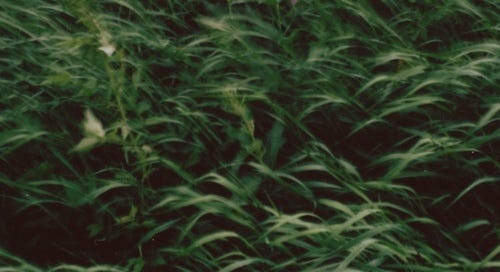



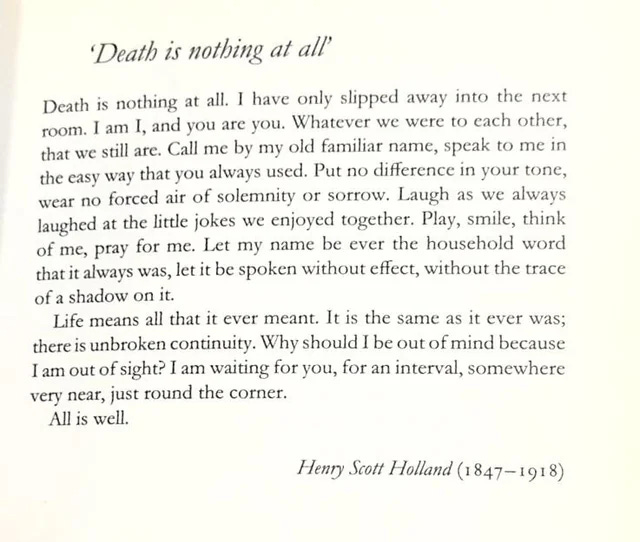
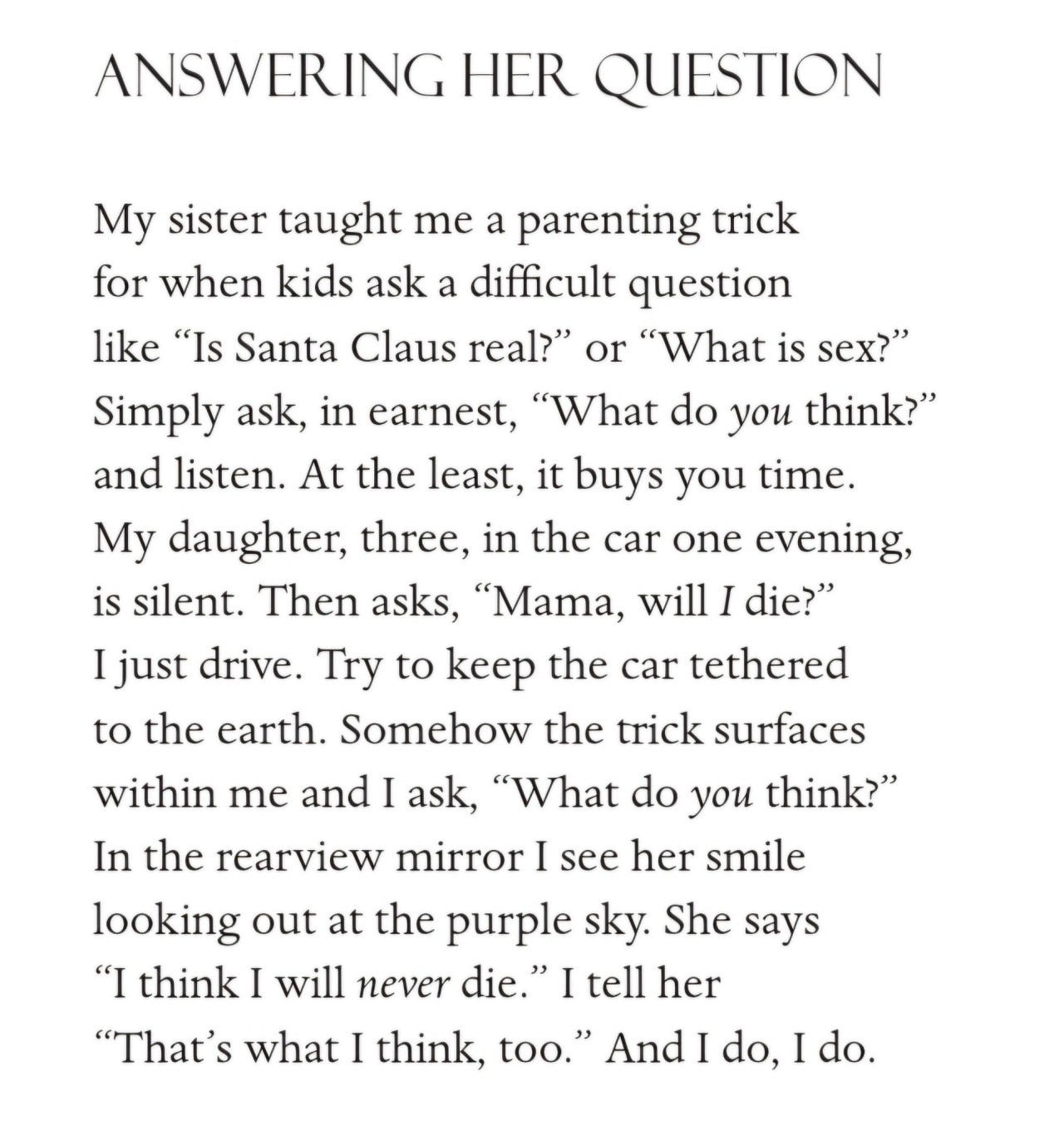
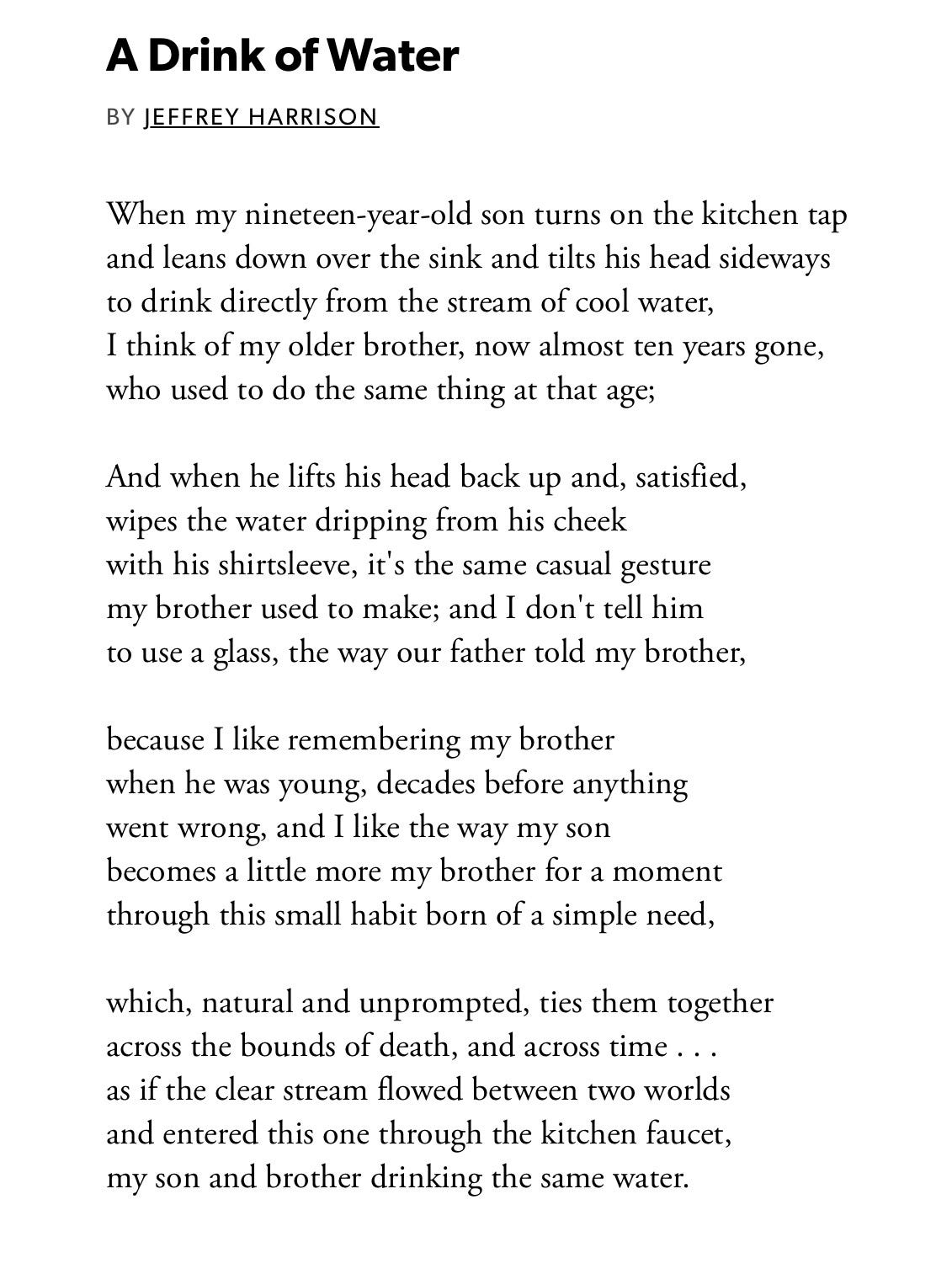


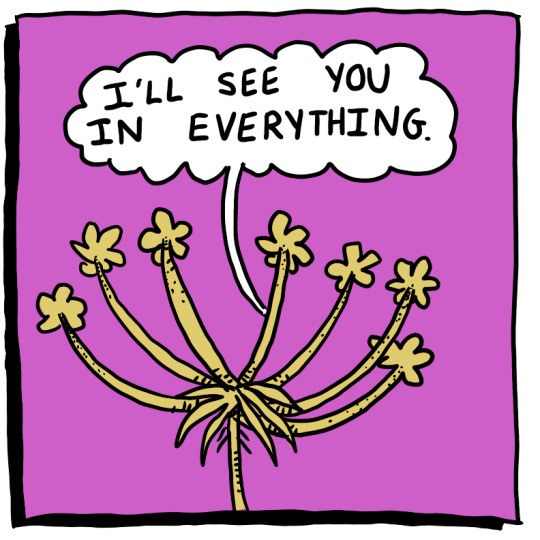

Such a beautiful piece and a beautiful tribute to your grandmother. The quotes at the end are such a lovely collection too and just another reminder of how united humans are in grief.
Thank you for sharing <3
So beautiful.